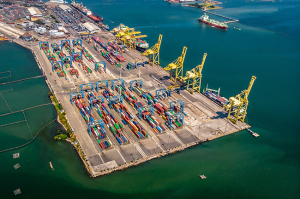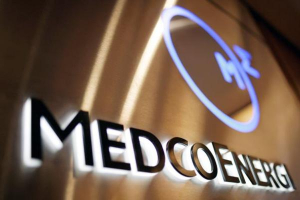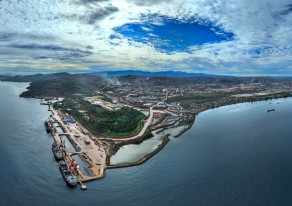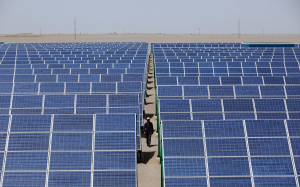Temas acquires new ships through IDR 1 trillion Capex in 2023
Container shipping company PT Temas Tbk (TMAS) has allocated IDR 1 trillion (US$ 64,114,900) of Capital expenditure (Capex) in 2023 to acquire new ships.
Being operational since 1988, the company, formerly known as PT Pelayaran Tempuran Emas Tbk (TMAS) or Temas Line, focuses on domestic and international transportation business, especially for passengers, cargo, and animals through ships. It also serves as an agent and shipping business in selling and buying ships, and ship equipment. The company is operational domestically only.
Currently, the company has several subsidiaries such as:
- Anemi Maritime Co Ltd. (Temas has 100% ownership);
- PT Asia Marine Temas (100%);
- PT Depo Lautan Nusantara (99.9%);
- PT Mentari Mas Multimoda (51%);
- PT Pelabuhan Temas Nusantara (99.9%);
- PT Temas Bulker (97%);
- PT Temas Depot (99.4%);
- PT Temas Port (99.67%);
- PT Temas Shipping (99.85%).
Capex used to buy new ships
Temas plans to add new ships according to the economical situation and conditions in the region. The Capex will be used mostly to buy new ships to the existing fleet. By now its fleet consists of 50 ships. It will also use the remaining Capex to increase efficiency by adding new warehouses, maintenance of equipment, and a depot with its containers.
"For 2023 we will add 1 ship and we will realize it in June 2022," Ganny Zheng, Director of Finance and Development, said during an interview with Kontan.co.id on January 9, 2023.
Temas is interested in new business sectors which are considered profitable, driven by several macro factors. Firstly, Indonesia is a maritime nation which means it needs ships to come about efficiently in terms of costs and logistics.
Secondly, other infrastructure projects such as roads, bridges, the development of a national fish barn which will be operational by 2023, and the construction of a new capital (IKN) in East Kalimantan.
Seeing this opportunity, Temas is optimistic that it will keep its growth in the Indonesian shipping sector. The company will increase its efficiency operationally and use technology to digitalize and speed up shipping.
Temas also plans to direct the company toward the strategic development of terminal, depot, and logistics in several locations that have good potential growth in logistic weight. Temas will see a net profit margin of about 10%-15% from the 2023 revenue.
"We continue to pay attention to global conditions, especially the threats of recession and global economic uncertainty in this regard. The company is always ready to adapt to deal with economic uncertainties," Zheng concluded.
Risk in shipping logistics
However, there are problems persists in the maritime sector such as logistics especially in archipelagic country like Indonesia. According to an analysis by Tedy Herdian, Deputy Port Facility Security Officer of the Trisakti University's Institute of Transportation and Logistics (2019), the shipping logistics has several significant problems that needs to be addressed such as waiting time, demurrage, loading and unloading equipments, and human resources (HR).
- The waiting time is a process of loading and unloading containers from ships and to the port until the container exits the terminal. The smaller the waiting time to load and unload, the better the performance. While, the greater the waiting the more impact it will give to the performance of the port/terminal.
- Demurrage is the time limit to use containers at the port is calculated through the loading and unloading process at the dock.
- Support equipment, port activity support equipment such as cranes and forklifts to support loading and unloading process. There are persisting problems such as lack of equipments, delays in the unloading processes at the port, vessel delays at port impacting goods prices, and rental prices.
- Human resources problems, such as during the loading and unloading trading activities as part of quality in port services depends on the quality of HR.
Tag
Already have an account? Sign In
-
Start reading
Freemium
-
Monthly Subscription
30% OFF$26.03
$37.19/MonthCancel anytime
This offer is open to all new subscribers!
Subscribe now -
Yearly Subscription
33% OFF$228.13
$340.5/YearCancel anytime
This offer is open to all new subscribers!
Subscribe now






